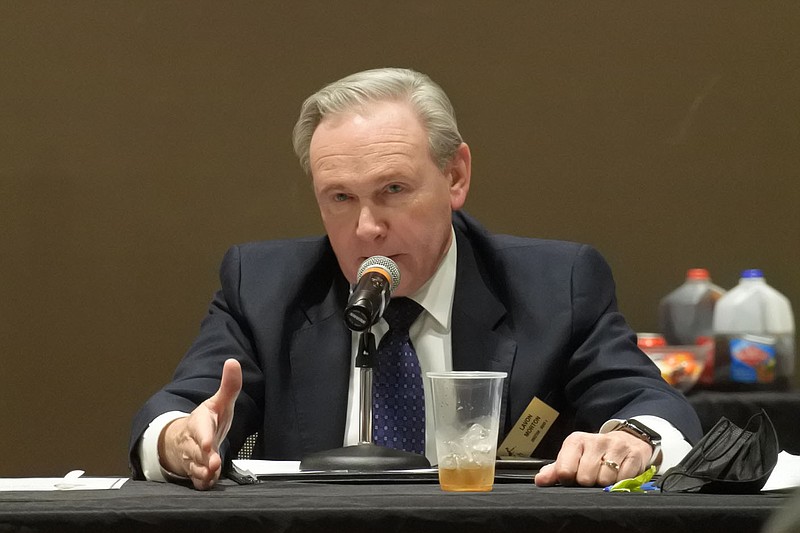FORT SMITH -- City officials are pushing for ways to pay for extensive sewer improvements mandated by the state and federal governments that don't burden residents even more.
The Board of Directors discussed how to address the city's federal consent decree during a workshop at the Blue Lion building downtown.
City officials signed a decree in 2015 with the U.S. Environmental Protection Agency, the Department of Justice and the state. It agreed to an estimated $480 million in repairs and upgrades to its wastewater system over 12 years to clear up chronic violations of the federal Clean Water Act.
The city raised its sewer rates 167% from 2015-17 to help fulfill the requirements of the decree.
The city announced May 8 the EPA and the Arkansas Division of Environmental Quality agreed the city demonstrated its sewer improvement program will be "inordinately expensive" and qualified for five more years to implement the changes. They also agreed to more flexibility with certain interim deadlines, allowing the city to extend expensive improvements over the entirety of the schedule.
City Administrator Carl Geffken told the board in June the city would be pursuing additional time to fulfill the decree requirements due to the covid-19 pandemic and the 2019 Arkansas River flooding.
Robyn Dawson, at-large position 5 director, said she believed the average resident cannot afford two more increases to sewer rates to help the city pay for the work. She said the decree seemed to force directors to cause its residents to go into "more of a hardship than what they really should have to do," with her feeling the board needs to have a creative way to generate that revenue without again raising sewer rates.
Geffken said it was initially thought the 167% increase would be able to pay for all of the costs.
"This was the problem with going into the consent decree without having been given the opportunity to actually examine the pipes that needed to be replaced or just cleaned, and that's part of the decision-making process that we are working through with DOJ," Geffken said.
Geffken said the city needed to do considerably more work than thought, resulting in the 167% raise not being enough to complete all of it. The city is looking to get a minimum of three more years to finish the work, although Geffken called six years "the most comprehensive" to him. Geffken said the city, if it only had the five-year extension, cannot pay for the improvements with money it has now.
Ward 1 Director and Vice Mayor Jared Rego voiced support for developing a communication plan to remind and inform residents about the decree.
"We really need to take this moment of pause and regeneration coming out of the pandemic to reimagine the way we communicate about this project," Rego said.
Ward 3 City Director Lavon Morton said May 1 is the six-year anniversary of the decree. He argued in favor of "planning for what we know," saying the only way for the city to know what it really has to do is to see what the cost is while taking into account additional time granted and revenue that will be generated during that time.
Geffken and Jeff Dingman, deputy city administrator, provided a conservative estimate that, during negotiation for the decree and after it was launched, the city has spent about $300 million on sewer improvements.
More News
At a glance
Fort Smith has an estimated population of 87,891 residents as of July 1, 2019.
Source: U.S. Census Bureau

